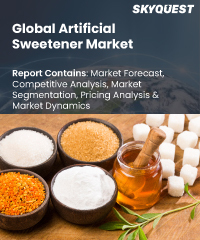
Product ID: SQMIG30C2096
Report ID:
SQMIG30C2096 |
Region:
Global |
Published Date: February, 2024
Pages:
261
|
Tables:
95 |
Figures:
76
We respect your privacy rights and safeguard your personal information. We prevent the disclosure of personal information to third parties.

Product ID: SQMIG30C2096